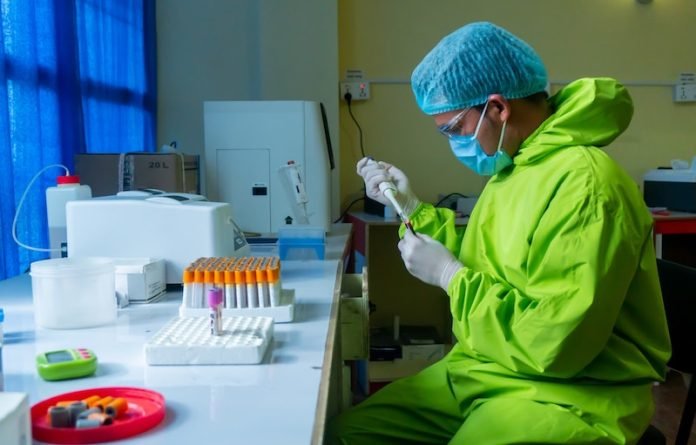
In two new studies, scientists provide up-to-date evidence on the effectiveness of both currently licensed and possible COVID-19 treatments under everyday conditions.
This may help shed more light on whether these drugs can prevent people from becoming seriously ill.
The first study was carried out in England between December 2021 and February 2022.
Researchers used hospital records and death certificates for high-risk adults with COVID-19 (average age 52) to compare the effectiveness of the antibody treatment sotrovimab with the antiviral drug molnupiravir.
They found that those who received sotrovimab were at a substantially lower (46%) risk of severe COVID-19 outcomes than those receiving molnupiravir, within 28 days of treatment.
Results were consistent when restricted to fully vaccinated people and also after further analysis of patients treated between February and May 2022 when the BA.2 omicron variant of COVID-19 was dominant in England, suggesting that they are relevant to current clinical care.
The researchers say that their real-world findings within a time period when both drugs were frequently prescribed and when new variants of COVID-19 were circulating provide evidence of the current effectiveness of sotrovimab over molnupiravir.
The second study examoined 787 patients with an average age of 49 years, admitted to the hospital from May 2020 to November 2021.
Included patients who had predominantly mild disease, although the researchers aimed to recruit patients at risk of severe COVID.
Half received angiotensin receptor blockers or ARBs (drugs widely used to treat high blood pressure and heart disease) and the other half (controls) received a placebo for 28 days.
A standard dose of the ARB drug telmisartan (starting dose 40 mg/d) was used only in India while the type and dose of ARB was at the discretion of the treating physicians in Australia.
These particular drugs were chosen because they work by regulating the same angiotensin protein as coronavirus uses to enter the body, and in the laboratory have shown potential protectivity against the severe effects of coronaviruses.
However, after 14 days of treatment, the researchers found no meaningful difference in illness severity between the two groups. These findings should help to inform clinical practice.
The lack of effect provides reassurance that it is safe to use these protective agents in people indicated, with or without COVID-19.
If you care about COVID, please read studies about the cause of post-COVID syndromes, and how vitamin B may help fight COVID-19.
For more information about COVID, please see recent studies about mouthwashes that may suppress COVID-19 virus, and results showing rare blood clots after COVID-19 vaccination.
The study was conducted by Bang Zheng et al and published in The BMJ.
Copyright © 2022 Knowridge Science Report. All rights reserved.



